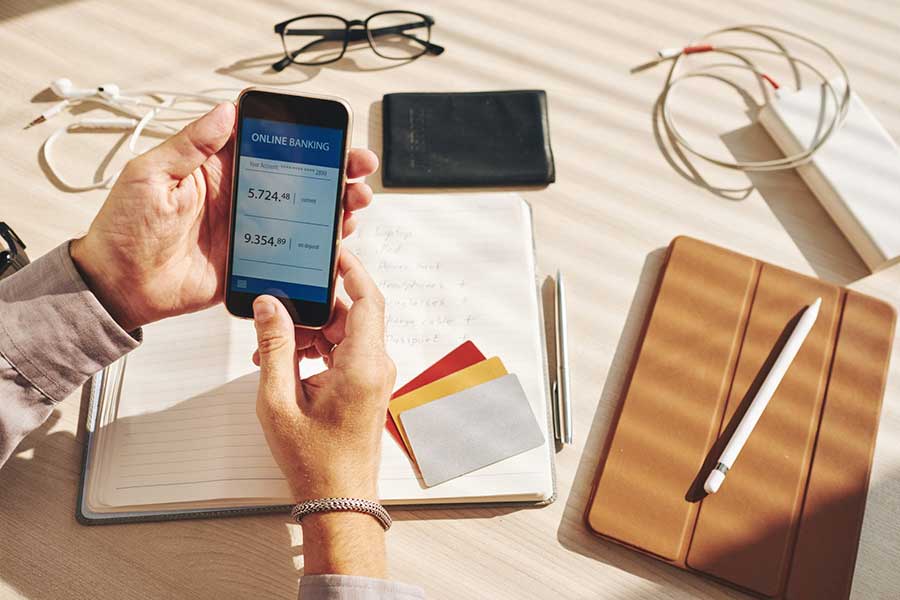Billions of dollars sit in old, forgotten bank accounts across the United States. Many of these accounts belong to people who moved, changed banks, or simply stopped using them years ago. If you think you might have money waiting to be claimed, you are not alone.

The process of finding and claiming an old bank account is easier than most people expect. There are free tools and simple steps that can help you track down any account in your name and get access to the funds.
This guide shows you exactly where to look, what information you need, and how to claim your money quickly and safely.
Why People Lose Track of Bank Accounts
People forget about bank accounts more often than you might think. It usually happens when someone moves to a new city, changes banks, or closes an account without realizing there was still money left. Mergers between banks can also make old accounts harder to trace.
In fact, the National Association of Unclaimed Property Administrators (NAUPA) reports that states return billions of dollars in unclaimed property each year. A large share of that comes from dormant or forgotten accounts.
How to Find an Old Bank Account in Your Name
There are several ways to find an old bank account. Some methods involve contacting banks directly, while others use free government resources that track unclaimed money.
Start With Your Old Bank Directly
If you remember the name of the bank where the account was opened, contacting them directly is often the fastest option. Call the bank’s customer service department or visit a branch if one is still nearby.
When you reach out, you will usually need:
- Identification: A government-issued photo ID such as a driver’s license or passport.
- Social Security number: Banks use this to verify account ownership.
- Old addresses: Helps confirm your identity if you have moved since opening the account.
Banks can quickly tell you if the account is still active or if the funds were sent to the state as unclaimed property.
Use Free Government and Banking Resources
If you no longer remember the bank’s name or it no longer exists, free online tools can help. Many of these are official government sites that keep records of unclaimed funds.
Here are some of the best places to search:
| Resource | What It Does | Website or Access Method | Cost |
|---|---|---|---|
| NAUPA | National database for unclaimed funds | MissingMoney.com | Free |
| FDIC BankFind | Tracks closed or merged banks | FDIC.gov | Free |
| NCUA | Credit union accounts | NCUA.gov | Free |
| State Treasury | State-specific unclaimed property | Varies by state | Free |
Each of these resources has its own search tool where you enter your name and state. If there is an account or funds in your name, the site will give instructions on how to claim it.
How to Check for Unclaimed Funds
After searching through your old bank directly, the next step is to check official state and federal databases. These sites store unclaimed money when banks cannot reach the account owner.
State Unclaimed Property Programs
Every state has an unclaimed property program that holds money from dormant accounts, uncashed checks, and other financial assets. If you have lived in more than one state, it is important to check each one because funds are turned over to the state where the account was opened.
To search effectively:
- Visit state treasury websites: Each state has its own unclaimed property page with a free search tool.
- Search all previous names and addresses: This includes married and maiden names, as well as old street addresses.
- File claims online when possible: Most states let you submit claims directly through their website.
The process is free, and once the claim is approved, the state mails you a check or sends the funds by direct deposit.
Federal Resources for Specific Funds
Some funds do not go to the states. Instead, they are held by federal agencies. Checking these sites can help if you suspect there might be unclaimed money outside of a traditional bank account.
- U.S. Treasury: Search for old savings bonds or federal refunds at TreasuryDirect.gov.
- HUD: The Department of Housing and Urban Development has a tool for unclaimed FHA mortgage insurance refunds at HUD.gov.
- Pension Benefit Guaranty Corporation: If you left a job with a pension, this site helps track unclaimed retirement benefits at PBGC.gov.
What If the Bank No Longer Exists?
Banks sometimes merge, get acquired, or close entirely. If your old bank no longer exists, the Federal Deposit Insurance Corporation (FDIC) can help you find out what happened to your account.
Here is what you can do:
- Search FDIC BankFind: This tool shows whether your bank merged with another or closed completely.
- Contact the successor bank: If another bank took over, they may still have records of your old account.
- Check state unclaimed property databases: If the funds were unclaimed during the closure, they may have been sent to the state treasury.
The FDIC provides step-by-step instructions on their website for claiming funds from defunct banks.
Documents You May Need to Claim Funds
Before filing a claim for an old bank account, gather the right paperwork to avoid delays. Agencies require proof of identity and ownership before releasing funds.
Here are the most common documents:
| Document Type | Why It’s Needed | Where to Get It |
|---|---|---|
| Photo ID | Verify your identity | DMV or Passport Agency |
| Proof of Address | Show prior residence | Utility bills, tax records |
| Legal Proof for Heirs | Claim deceased relative’s funds | Probate or court records |
Providing these documents upfront speeds up the claim process and prevents requests for additional information later.
How Long You Have to Claim Funds
In most states, once unclaimed money is turned over to the state treasury, it stays there until the rightful owner claims it. There is no time limit for most accounts, so the funds will not disappear if you do not act right away.
The only exceptions involve certain federal programs. For example, some federal benefits or tax refunds have specific time frames for filing a claim. It is always best to check each agency’s rules to avoid missing out on those funds.
Common Mistakes to Avoid
When searching for old bank accounts, people often make errors that can delay or block the process. Being aware of these mistakes helps you save time and avoid losing money.
- Paying for services: Some companies charge to search for unclaimed funds, but the same tools are available for free on official government sites.
- Skipping prior names or addresses: If you have changed your name or lived in multiple states, check every variation to cover all possibilities.
- Ignoring small balances: Even small amounts can add up over time, especially if there is interest involved.
What to Do After You Find the Account
Once you confirm an old account exists, the next step is to claim your money. Each state or agency provides instructions for submitting proof of ownership, often through an online portal.
After your claim is processed and approved, you will typically have two options:
- Direct deposit: Fastest method to transfer funds into your current account.
- Mailed check: A paper check sent to your verified address.
If the amount is significant, you may want to transfer it into a high-yield savings account or invest it to grow the funds over time.
Final Thoughts
Finding an old bank account in your name is easier than it seems, especially with today’s online search tools. Most states and federal agencies make the process free and straightforward, so there is no need to pay third-party companies.
Even if you think the balance might be small, it is worth checking. The money belongs to you, and claiming it only takes a few minutes once you have the right information.
Set a reminder to search every few years so you never lose track of your funds again.
Frequently Asked Questions
Can I find an old bank account without knowing the account number?
Yes. Most state and federal search tools only require your name and possibly your Social Security number. The account number is not necessary to start the search or to file a claim for unclaimed funds.
How long does it take to receive money from an unclaimed account?
The timeline varies by state and agency, but most claims are processed within a few weeks to a few months. Submitting complete and accurate documents speeds up the process.
Is there a fee to claim money from an old bank account?
No. Government websites and state unclaimed property offices never charge fees for searching or claiming funds. Be cautious of third-party sites that try to charge for this service.
Can I search for old accounts for someone who has passed away?
Yes. Heirs and legal representatives can search for accounts belonging to a deceased person. Most states require legal documents such as a death certificate and proof of relationship before releasing funds.
Do unclaimed accounts earn interest over time?
Most accounts stop earning interest once the funds are turned over to the state or federal agency. The amount you receive will usually be the balance at the time the account became inactive.



